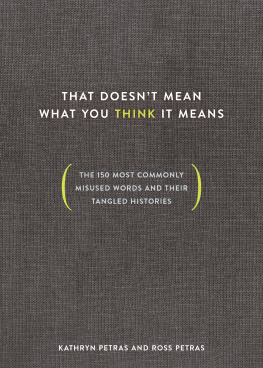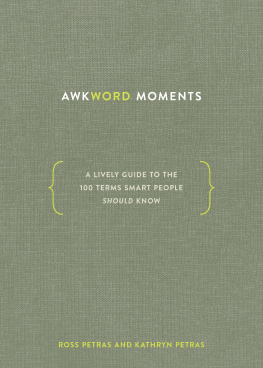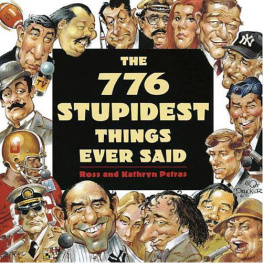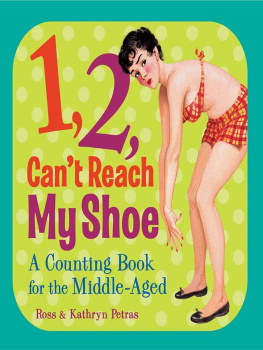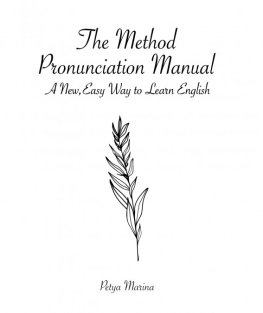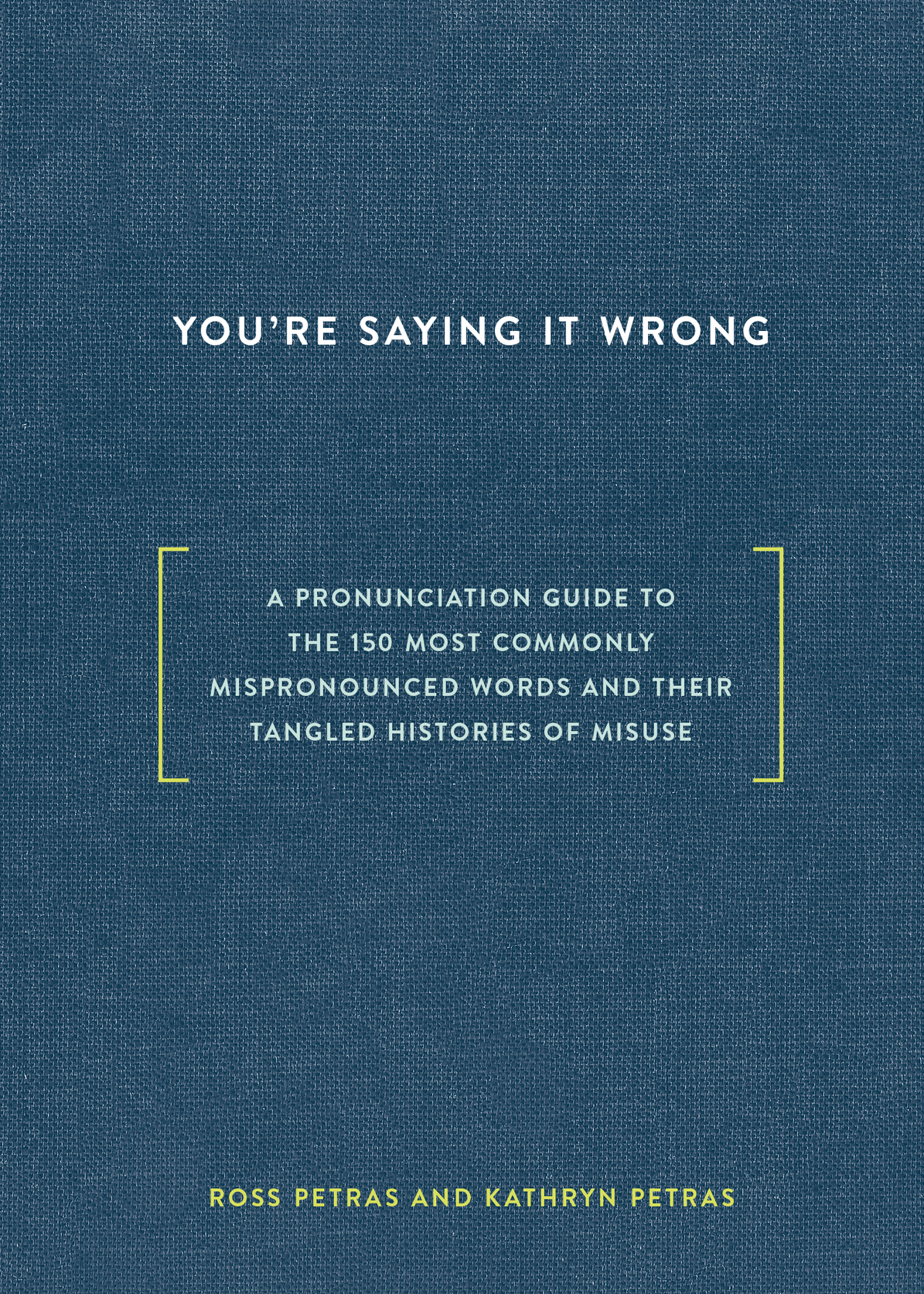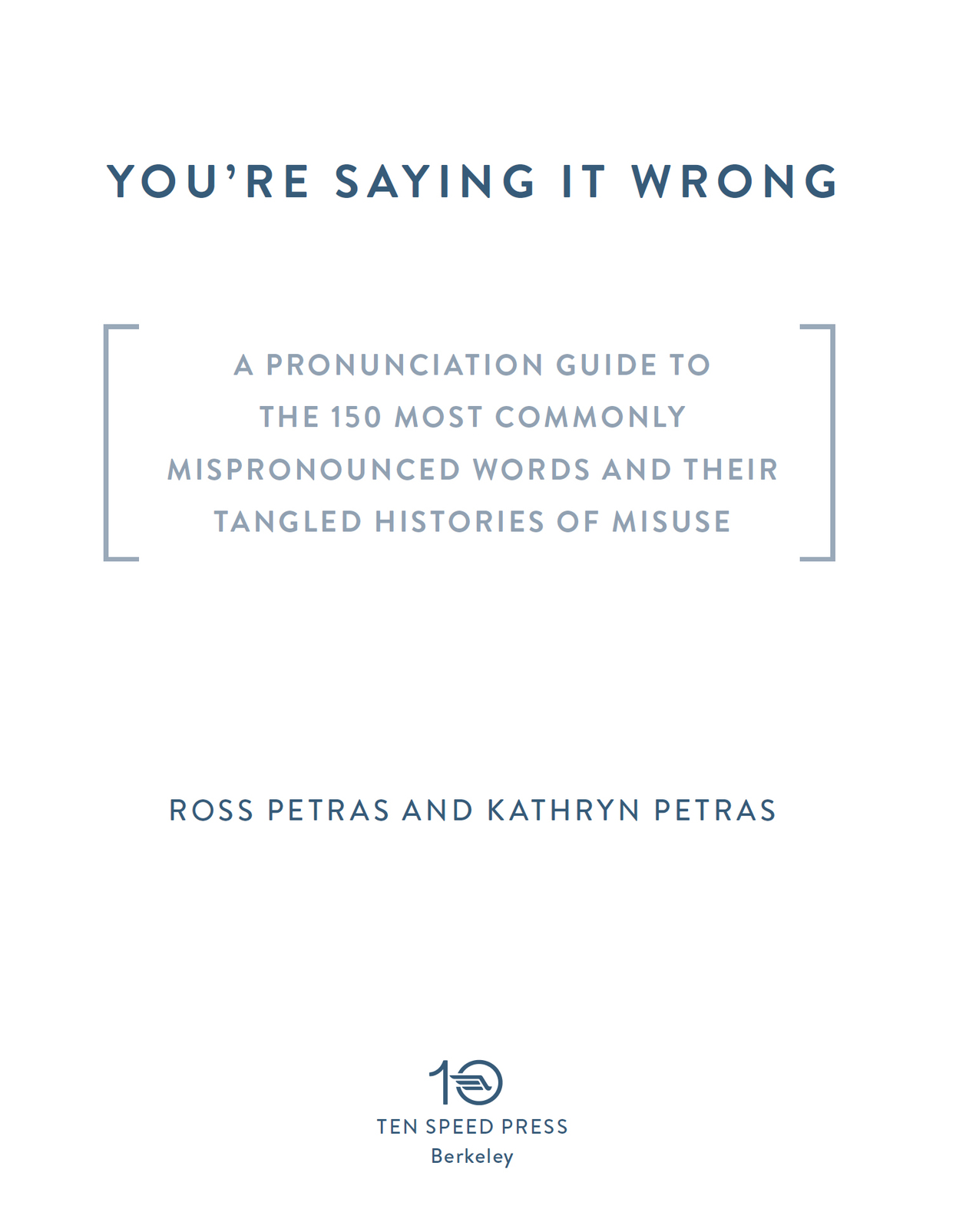INTRODUCTION
Weve all been there. Youre at a party, talking to someone you want to impress, trying to sound superintellectual, when wham! You toss in some ostensibly impressive word or term and then realize by the expression on your listeners face that you completely blew it by mispronouncing said word or term.
Its indeed a common problem and a common worry. A 2015 study conducted for Dictionary.com found that 47 percent of all Americans are irritated by mispronunciations and correct their family and friends. Millennialsaged eighteen to thirty-fourare the pickiest: 63 percent of them confess to correcting other peoples mistakes. Across the pond in Great Britain, where English began, its a similar situation. A recent study commissioned by St. Pancras International found that nearly a quarter of all British people are so worried about getting certain words wrong that they actually ask someone else to say them. One in six say they stop the conversation to apologize for their mispronunciation. But a whopping 41 percent go on the attack and stop a conversation to correct someone else. Thus this book.
We call these mispronounced words shibboleth words. These are the words that can trip you up, mix you up, and make you sound like an ignoramusright when youre trying to sound intellectual (or at least not like an ignoramus!).
But why the term shibboleth words? What is a shibboleth? Technically, a shibboleth is a custom or mode of speaking, behaving, or believing that distinguishes one group of people from another. The word shibboleth itself comes from the Hebrew word shibbleth ( 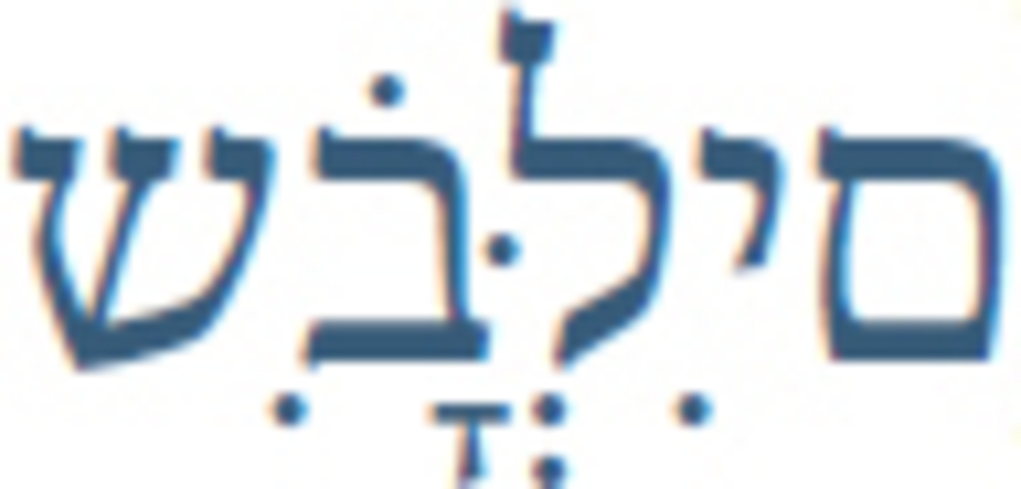
 ), which literally means grain stalks. What do grain stalks have to do with pronunciation? Quite a bit, if you were an ancient Ephraimite. In biblical times, during a war with the Ephraimites, the equally ancient Gileadites used to ask people crossing the boundary River Jordan to say the word. The Gileadites could say the shibboleth correctly, but the enemy Ephraimites couldnt pronounce the shand so, by the sound of a pair of letters, they were identified as the enemy and killed. Even more recently, British commandos in World War II used an identification-code shibbolethsquirrelsince the Germans usually pronounced it skwiv-er-el; mispronouncers faced the same dire penalty as the ancient sh-less Ephraimites. Fortunately, the penalties arent so severe nowadays. Humiliation beats death. But its still mortifying, if not mortal.
), which literally means grain stalks. What do grain stalks have to do with pronunciation? Quite a bit, if you were an ancient Ephraimite. In biblical times, during a war with the Ephraimites, the equally ancient Gileadites used to ask people crossing the boundary River Jordan to say the word. The Gileadites could say the shibboleth correctly, but the enemy Ephraimites couldnt pronounce the shand so, by the sound of a pair of letters, they were identified as the enemy and killed. Even more recently, British commandos in World War II used an identification-code shibbolethsquirrelsince the Germans usually pronounced it skwiv-er-el; mispronouncers faced the same dire penalty as the ancient sh-less Ephraimites. Fortunately, the penalties arent so severe nowadays. Humiliation beats death. But its still mortifying, if not mortal.
This is the prime reason for this book: to help us all avoid that unpleasant mortification that ensues when we attempt to use one of the surprisingly large number of words that we have absolutely no idea how to say properly. Youre Saying It Wrong not only tells you how to correctly pronounce these shibboleth words, but also discusses their origins, delves into some fascinating word facts and histories, and examines why so many of us dont know how to pronounce these words correctly. The specific words and phrases weve chosen are the ones that smart people most commonly mispronounce, the ones that appear on lists and in dictionary surveys, and those we ourselves found the most confounding.
One important note: While some of these shibboleth words do have a correct pronunciation and an incorrect one, according to the dictionary, others are more fluid. In some cases, so many people mispronounce a word that the new (originally wrong) pronunciation slowly becomes acceptedand sometimes even preferred. (Chalk up another point for English as a growing language.) In other cases, there are two or more acceptable pronunciations. And in still others, certain groups or regions have one pronunciation, while others have their own. Weve tried to be clear in covering these different instances.
We also must mention that when it comes to pronunciation inclusion, some dictionaries are very, shall we say, exuberant? Maybe a little too exuberant (were not naming names). Their motto seems to be, We include every pronunciation weve ever heard of this word! In this book, weve tried to keep it a little more streamlined and present the preferred pronunciations, not the whole shebang (pronounced shuh-BANG, by the way), the ones most dictionaries, linguists, and generally knowledgeable Americans agree upon.
That brings us to another point: some people argue that, since languages change, we should just get used to it, that theres no such thing as preferred or correct pronunciation at all. Yes, English keeps changing, but we must add that most linguistic changes (consonantal drift and the like) take at least decades. (If you chatted about horshwoel now, no one would know what you were talking about. But thats how you used to say walrus.)
So were in the camp of the Why not pronounce it the way most people say it should be pronounced now? school. We also have made American pronunciation the default. British English has its own sound. We reached our conclusions by drawing on such definitive tomes as the Oxford English Dictionary, the American Heritage Dictionary, the Cambridge English Dictionary, Merriam-Websters Collegiate Dictionary, and Websters Third New International Dictionary, and by reading linguistics blogs, journals, articles, and surveys on pronunciation and, even more helpfully, mispronunciation.
All that said, we hope you find the book as enlightening as we found it while collecting these shibboleth words. (Confession: In the process of doing this book, we discovered quite a few words wed been mispronouncing all along. Live and learn!)
TWO IMPORTANT NOTES TO KEEP IN MIND WHEN READING THIS BOOK
First, although we said it earlier, it bears repeating: Some dictionaries include virtually all pronunciations of a word, including those that are slangy or generally regarded as incorrect. We do not; we include only those that are generally regarded as correct or preferred.
Second: weve indicated how to pronounce words a bit unscientifically, according to what looks easiest and most accurate for a given word. Sometimes one way of writing a sound looked easier to understand than another way, and so we erred on the side of ease of comprehension rather than consistency. Also, although many dictionaries use special symbols such as the famous (or infamous) schwa sound symbol () weve avoided such symbols when showing how a word should sound. We use CAPITAL letters to indicate where the stress should be. And thats about it.


